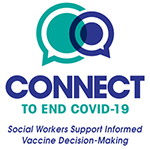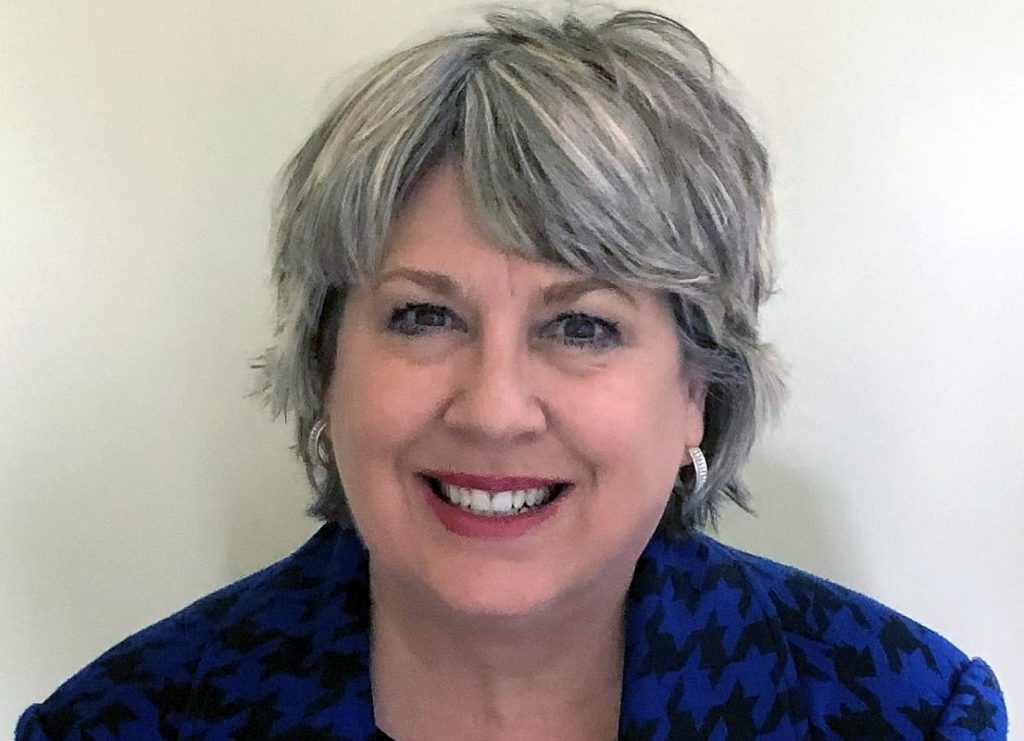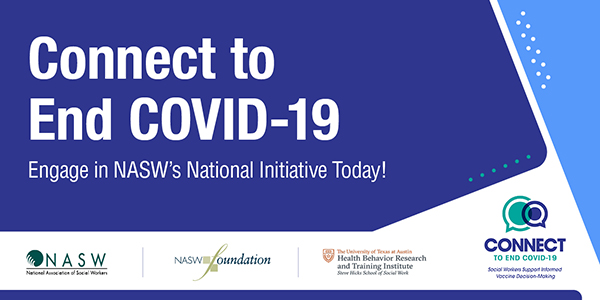Article by Connect to End COVID-19 Communications Lead, Kim M. Simpson and Connect to End COVID-19 Communications Consultant, Susan Bodiker.
It is easy to forget how terrified we were in the early days and months of the pandemic—and the relief we felt when mRNA vaccines were developed, approved, and rolled out across the country in seemingly record time.
In January of 2020, as COVID-19 began its global spread, the Secretary of the U.S. Department of Health and Human Services (HHS) declared a 90-day public health emergency (PHE), which was renewed every 90 days from 2020 to early 2023. The World Health Organization (WHO) declared a public health emergency of international concern (PHEIC) January 31, 2020 and a worldwide pandemic on March 11, 2020. The president declared a national emergency in the United States March 13, 2020.
The numbers, since then, are staggering: nearly 105 million total cases have been recorded in the United States alone, with more than 1.1 million total deaths, according to the Centers for Disease Control and Prevention (CDC) COVID Data Tracker, as of May 11, 2023.
The WHO COVID-19 Dashboard: 765,903,278 confirmed cases of COVID-19, including 6,927,378 deaths, reported to WHO, as of May 10, 2023, with a total of 13,349,320,292 vaccine doses administered globally.
In the United States, 81.4% of the U.S. population has received at least one COVID-19 dose, while 69.5% completed the primary series, and 17.0% received the updated (Bivalent) booster dose, as of May 10, 2023, according to CDC COVID Data Tracker.
COVID-19: A Changing Landscape
It is worth remembering what transpired during the pandemic, especially as coordinated response efforts undergo anticipated transitions. The World Health Organization (WHO) declared on May 5, 2023 that the public health emergency of international concern should end. The White House officially allowed the COVID-19 public health emergency to expire in the United States May 11, 2023. The national emergency ended April 11.
According to the CDC website, it is “. . . shifting from an emergency response to incorporating COVID-19 activities into routine public health practice.” The website provides an array of ‘What You Need To Know’ information and tools.
While the pandemic landscape is changing, and many of us, as individuals, may feel done with COVID-19, experts say COVID-19 is not done with us. As it continues to infect, kill, and potentially evolve—vigilance should be our watchword.
The WHO International Health Regulations (2005) (IHR) Emergency Committee regarding the coronavirus 2019 disease (COVID-19) pandemic statement transmitted by WHO Director-General Tedros Adhanom Ghebreyesus on May 5, 2023 said:
“During the deliberative session, the Committee members highlighted the decreasing trend in COVID-19 deaths, the decline in COVID-19 related hospitalizations and intensive care unit admissions, and the high levels of population immunity to SARS-CoV-2. The Committee’s position has been evolving over the last several months. While acknowledging the remaining uncertainties posted by potential evolution of SARS-CoV-2, they advised that it is time to transition to long-term management of the COVID-19 pandemic.
The WHO Director-General concurs with the advice offered by the Committee regarding the ongoing COVID-19 pandemic. He determines that COVID-19 is now an established and ongoing health issue which no longer constitutes a public health emergency of international concern (PHEIC).”
Connect to End COVID-19 Campaign
In 2021, NASW and the NASW Foundation partnered with the Health Behavior Research and Training Institute (HBRT) at The University of Texas at Austin Steve Hicks School of Social Work on a national $3.3 million CDC-funded initiative to support social workers and their clients in informed vaccine decision-making, Connect to End COVID-19.
workers and their clients in informed vaccine decision-making, Connect to End COVID-19.
Social workers, as professionals who provide services in a wide range of community settings—and are seen trusted messengers—are thus in a unique position to continue to promote COVID-19 vaccine confidence, access, and uptake, particularly among populations with low vaccination rates and higher vulnerability to severe forms of infection.
During this two-year initiative a majority of NASW’s Chapters participated by providing valuable communications to state audiences and/or by collaborating with NASW, the NASW Foundation, and HBRT, in offering 25 six-hour Motivational Interviewing (MI) and Screening, Brief Intervention, and Referral to Treatment (SBIRT) trainings to social workers across the country. MI-SBIRT are evidence-based models for supporting clients in making informed decisions about their health. These evidence-based modalities can be effectively deployed to help guide collaborative conversations with clients about COVID-19 vaccine decision-making.
Connect to End COVID-19 also engages with approximately 40 social work Ambassadors and Social Work Sister Organizations that assist in promoting COVID-19 vaccine confidence.
Thoughts from NASW Chapter Executive Directors

Gwen Bouie-Haynes, PhD, LMSW is the Executive Director of the NASW Mississippi Chapter, and serves as the Connect to End COVID-19 Project Coordinator for Special Populations. She admits that initially she felt doubtful about the efficacy of the vaccine. Like many Americans, she felt it happened so fast and she wasn’t sure it would make a difference. Then, she said, her daughter, a physician, “showed me data from my own community, and my age group. I saw how many people were dying. She said, ‘Do you want to die or do you want to live?’ I want to see my daughter and her twin brother, an attorney, make a difference in their professions. That is when I decided to err on the side of caution, and view the vaccine as preventative.” She added, “If I’m going to be an advocate, I have to set an example.”
Brenda Rosen, MSW, CSW, ACHP-SW, Executive Director of the NASW Kentucky Chapter, is participating in Connect to End COVID-19 by communicating about the initiative and promotes vaccine confidence to her state audience. She has seen the impact of the campaign on both a statewide and local community level. “The work NASW has done to connect social workers and community agencies, citizens, and network partners to help keep everybody updated throughout the course of the pandemic has really aligned with the work we’re doing with Team Kentucky.”

She also emphasized the importance of getting churches, community centers, and health departments on board. “It really makes your heart happy when you see some of the shifts in attitudes. People are suddenly saying: ‘this is something we need to do as a community. We need to pull together.’” Brenda supports NASW’s Connect to End COVID-19 campaign outreach as well, calling the website’s content “necessary, vital, and needed information” and describing the training as “invaluable, engaging, and empowering.”
While the goal of this initiative is to promote vaccine confidence and make informed choices, success will ultimately be measured not in vaccine uptake, but “keeping people healthy and saving lives.”
________________________________________
Social Workers can stay up to date on COVID-19 vaccine information by visiting the CDC website. Safe and effective, COVID-19 vaccines have been shown to prevent severe illness, hospitalization, and death.
Learn more about Connect to End COVID-19 by visiting NASW’s website. Register for four complimentary self-study national webinars and stay tuned for new webinars in 2023. A limited number of complimentary CEUs are also available, so secure yours by signing up today.
________________________________________
Resources
The White House
World Health Organization (WHO)
Centers for Disease Control and Prevention (CDC)
- CDC COVID-19
- CDC COVID Data Tracker
- Stay Up to Date with COVID-19 Vaccines
- Building Confidence in COVID-19 Vaccines
- How to Tailor COVID-19 Vaccine Information to Your Specific Audience
- End of the Federal COVID-19 Public Health Emergency (PHE) Declaration | CDC
U.S. Department of Health and Human Services (HHS)
- Telehealth policy changes after the COVID-19 public health emergency
- May 9, 2023, Fact Sheet: End of the COVID-19 Public Health Emergency
- April 26, 2023, CMS Fact Sheet: What Do I Need to Know? CMS Waivers, Flexibilities, and the Transition Forward from the COVID-19 Public Health Emergency – PDF
- April 26, 2023, CMS Frequently Asked Questions on CMS Waivers, Flexibilities, and the End of the COVID-19 PHE – PDF
- April 18, 2023, Fact Sheet: HHS Announces ‘HHS Bridge Access Program For COVID-19 Vaccines and Treatments’ to Maintain Access to COVID-19 Care for the Uninsured
- April 14, 2023, Fact Sheet: HHS Announces Intent to Amend the Declaration Under the PREP Act for Medical Countermeasures Against COVID-19
- April 14, 2023, HHS Secretary Xavier Becerra’s Letter to US Governors on Intent to Amend the Public Readiness and Emergency Preparedness Act (PREP Act)
- March 7, 2023, Letter to US governors from HHS Secretary Xavier Becerra thanking governors for your efforts over the last three years during the coronavirus disease 2019 (covid-19) pandemic
- February 27, 2023, CMS Fact Sheet: CMS Waivers, Flexibilities, and the Transition Forward from the COVID-19 Public Health Emergency
- February 9, 2023, Fact Sheet: COVID-19 Public Health Emergency Transition Roadmap
- February 9, 2023, HHS Secretary Xavier Becerra’s Letter to US Governors on the End of the COVID PHE
National Association of Social Workers (NASW)
- NASW COVID-19 Resources
- Planning for Medicaid Unwinding in 2023
- Tips and Tools for Social Workers: Key Health Care Policy Dates in Spring 2023
- Crisis Impact: Social Workers Confront Pandemic While Caring for Others
- Vaccine Education: CDC Grant Will Help Train Social Workers to Inform Clients, Communities (NASW Social Work Advocates)
- COVID-19 Year 3: Social Workers and Their Clients Continue to Navigate the Pandemic and its Impact, Even as Society Shifts Back Toward ‘Normal’ (NASW Social Work Advocates)
- NASW Social Work Talks Podcast Episode EP80: Vaccine Education with “Connect to End COVID-19”
- NASW Social Work Talks Podcast Episode EP85: How To Reach Special Populations with Motivational Interviewing
___________________________________________________
This project and blog post are supported by the Centers for Disease Control and Prevention of the U.S. Department of Health and Human Services (HHS) as part of a financial assistance award totaling $3.3 million with 100 percent funded by CDC/HHS. The contents are those of the author(s) and do not necessarily represent the official views of, nor an endorsement by, CDC/HHS, or the U.S. Government.




